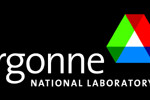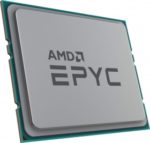The U.S. Department of Energy’s Innovative and Novel Computational Impact on Theory and Experiment (INCITE) program is now accepting proposals for high-impact, computationally intensive research projects in a broad array of science, engineering and computer science domains. Proposals must be submitted between April 10 and June 14, 2024. Open to researchers from academia, industry and […]
INCITE Call for Proposals for Access to Leadership-Class Supercomputers Open through June 14
ALCF User Community: Call for Argonne Art of Science Images, April 23 Deadline
Argonne National Laboratory has issued call for images for the 2024 Argonne Art of Science Contest.Submission deadline for science visualizations: Tuesday, April 23. For submission and prize details, visit this webpage. This is open to the Argonne Leadership Computing Facility user community, The contest is accepting scientific visualizations of research created using ALCF computing resources. […]
ALCF Digital Twins Webinar on April 19: How HPC is Personalizing the Future for Complex Systems
April 17, 2023 — The Argonne Leadership Computing Facility will host a live streamed webinar on digital twins and HPC on Wednesday, April 19 from 3 to 3:40 pm Eastern Time. The webinar will be presented by Karen E. Willcox, director of the Oden Institute for Computational Engineering and Sciences, associate VP for research, and […]
ALCF’s Michael Papka Wins Pinnacle of Education Award
Oct. 5, 2022 — Michael E. Papka, a deputy associate laboratory director at the U.S. Department of Energy’s (DOE) Argonne National Laboratory and director of the Argonne Leadership Computing Facility (ALCF), has been recognized with the 2022 Argonne Board of Governors’ Pinnacle of Education Award for his dedication and contributions to science education outreach activities […]
Amazon Web Services Joins Q-NEXT Quantum Research Center
Amazon Web Services (AWS) has become a member of Q-NEXT, a quantum research center developing the science and technology for controlling and distributing quantum information. Q-NEXT’s mission is to furthers quantum R&D and help create a quantum ecosystem by bringing together science organizations and commercial businesses to solve quantum technology challenges. With AWS as a member, Q-NEXT now […]
Argonne to Hold Feb. 17 ATPESC HPC Training Program on Extreme-Scale Computing
On Thursday, Feb. 17, Ray Loy, director of the Argonne Training Program on Extreme-Scale Computing (ATPESC) at the Argonne Leadership Computing Facility, will hold a training session at 1 pm Central Time. Go here to register. ATPESC provides intensive, two-week training on the key skills, approaches and tools to design, implement and execute computational science […]
Exascale: ALCF and Intel to Host Aurora Learning Paths Series
The Argonne Leadership Computing Facility (ALCF) in partnership with Intel will host the ALCF Aurora Learning Paths learning seriesto explore use of oneAPI and Data Parallel C++ (DPC++), Intel’s open-source implementation of SYCL, to demonstrate methods to achieve performant, portable code across five platforms available on the Intel Devcloud. There are four modules within the […]
Argonne Names 5 New Distinguished Fellows
Argonne National Laboratory has named for 2021 five new Argonne Distinguished Fellows, the lab’s highest title: Pete Beckman, Lois Curfman McInnes and Rick Stevens from the Computing, Environment and Life Sciences (CELS) directorate; Jeffrey Elam from the Energy and Global Security (EGS) directorate; and Stephen Gray from the Physical Sciences and Engineering (PSE) directorate. Of […]
Preparing for Exascale: Aurora to Drive Brain Map Construction
The U.S. Department of Energy’s Argonne National Laboratory will be home to one of the nation’s first exascale supercomputers when Aurora arrives in 2022. To prepare codes for the architecture and scale of the system, 15 research teams are taking part in the Aurora Early Science Program through the Argonne Leadership Computing Facility (ALCF), a […]
Argonne Picks AMD EPYC CPUs for Polaris
Santa Clara — Aug. 30, 2021 — AMD today announced that the U.S. Department of Energy’s (DOE) Argonne National Laboratory has chosen AMD EPYC processors to power the Polaris supercomputer (see earlier coverage), which will prepare researchers for the forthcoming exascale HPC system at Argonne called Aurora. Polaris will use 2nd Gen EPYC processors and then upgrade to 3rd Gen […]










